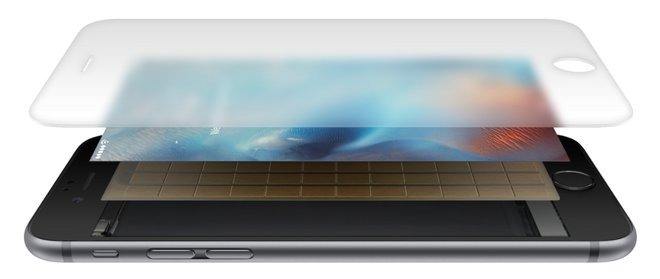Testifying during the ongoing antitrust trial pitting the U.S. Federal Trade Commission against Qualcomm, an expert witness claimed that despite the FTC's allegations, the company doesn't have enough clout to harm the mobile chip industry.
Qualcomm has for instance cut chip prices in response to MediaTek products, and Intel seeking orders from Apple in 2014, consultancy owner Tasneem Chipty said on Tuesday, according to CNet. While those actions won Qualcomm business, that's not anticompetitive, Chipty explained.
"Qualcomm doesn't have sufficient market power to coerce OEMs into onerous business terms that would rob them of billions of dollars," she argued, pointing to the fact that the company lost 50 points of marketshare in premium smartphones between 2014 and 2017, ceding ground not just to MediaTek and Intel but Huawei and Samsung. Since March 2018, all of the new premium phones from Apple and Huawei have used non-Qualcomm chips.
Apple's director of cellular systems architecture, Matthias Sauer, earlier testified that Intel modems were under consideration as far back as 2012, but that they didn't meet specifications. He also acknowledged, however, that an Intel modem might've made its way into 2014 iPads, but Qualcomm offered incentives to stay loyal.
Chipty further suggested that the FTC had failed to recognize the "dynamic competition" in the chip industry, and that Qualcomm's deals with Apple were forged out of solid business reasons.
The FTC's lawsuit dates back to 2017, and accuses Qualcomm of antitrust violations by forcing chip buyers to sign patent licenses at inflated rates. The Commission rested its case last week.
Qualcomm has defended its practices by a number of means, for example pointing to the high cost of innovation. Apple has called the chipmaker's demands "onerous," at one point asking Apple to cross-license all of its intellectual property to get a direct license for standards-essential patents, something it decided to eschew.
Apple's Chief Operating Officer Jeff Williams recently revealed that Apple wanted to return to a mix of Intel and Qualcomm modems for 2018 iPhones, but was shot down by Qualcomm CEO Steve Mollenkopf. The two companies have been engaged in a global legal war since 2017, instigated by Apple, which sued over nearly $1 billion in rebates allegedly withheld as retaliation for cooperation with antitrust investigators.
 Roger Fingas
Roger Fingas







-m.jpg)






 Wesley Hilliard
Wesley Hilliard
 Malcolm Owen
Malcolm Owen
 Andrew Orr
Andrew Orr
 William Gallagher
William Gallagher
 Sponsored Content
Sponsored Content
 Christine McKee
Christine McKee

 Thomas Sibilly
Thomas Sibilly






8 Comments
Issue is double-dipping and non-fixed but % of product selling price charge. And one man or woman's opinion doesn't make it right or wrong.
Wait - just yesterday we heard that Qualcomm's chips were the only viable option, now they're claiming that they 'don't have sufficient power to coerce OEMs.' Being the only viable option is an effective monopoly, so how could they not have enough power to coerce OEMs? This is also about more than just Apple - other manufacturers use QC processors and other chips, meaning QC could well force them into more unfavorable terms for one line of products by leveraging other more critical lines.
Oh, Chipty says huh? Chipty makes no sense.
https://matrixeconomics.com
Dr. Tasneem Chipty
Owner and two principals all Ph.D. in economics. Economics degree at MIT???? How does an economics degree qualify someone to make judgments on whether a computer product gives someone clout? As everyone on this forum knows, cell phones don't work (at least before cellular WiFi) without a cellular chip. Just because more companies have recently developed cellular chips doesn't mean Qualcomm wasn't anti-competitive before competition started. Also, Qualcomm owned all the CDMA patents didn't they? Therefore, Apple was required to use Qualcomm chips for Verizon. Apple had not choice.
For a company to LOSE 50 points in three years, would generally be putting that said company in receivership... unless they had so much clout, margins or double charging, which is why we are here today.